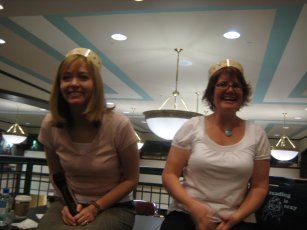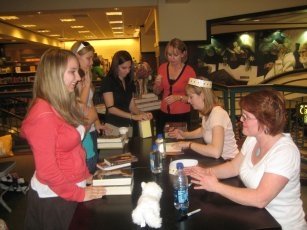As you may know, if you’ve found yourself here, my YA Fantasy novel, Ash Princess, will be out from Delacorte (Random House) in Spring 2018 in the US. It’s also sold in ten(!!!) other countries so far, which is just surreal. I think everyone who knows me knows that this has been a long time in the works. Eight years, to be exact, from finishing my first book when I was eighteen to selling this one.
Which also breaks down to nine manuscripts. You read that right. Nine manuscripts. In hindsight, most of these could more accurately be called drafts since it took me quite a while to get the hang of editing (and relatedly, asking for help from critique partners and beta readers). So if I could give any kind of general advice, it would be that: get other eyes on your work. Ask for help from people who you trust to be critical. Listen to them and REwrite.
Other advice? Write a compelling query letter.
One important thing to remember is that agents WANT you to succeed. They’re hoping a query will grab them, they’re hoping they’ll read material they fall in love with. But they also see a lot of queries and writing a query that stands out is a lot of work and often requires several drafts and getting critiques from others to point out things that you might be too close to notice.
I’ve interned at two different literary agencies and at one, my main job was going through the query inbox. At the other, I read submitted manuscripts, which is a topic for a different day. I had already sent my queries for Ash Princess when I started my first internship and shortly thereafter, my agent (the incomparable Laura Biagi) offered me representation, but I learned so much about writing query letters in those months that I wish I’d known years earlier because my queries pre-Ash Princess?
They sucked. You want proof? Behold: the very first query I ever wrote, at eighteen, for a YA fantasy novel in the vein of Gail Carson Levine in all of it’s cring-y glory.
To __________,
Undoubtedly you’ve grown up hearing fairytales. Cinderella, Snow White, Rapunzel, Beauty and the Beast; classic tales full to the brim of magic, love and happily ever afters for all those who deserve them. Stories about dainty, delicate princesses, peasant girls with their heads in the clouds and heroes that are all charm and no flaws. But in reality, no one is quite so perfect, even in the realm of fairytales.
Anything, my first full novel, is the story about three girls who live in the fantastical country of Vairleigh. There’s Violie, the blunt, brash and beautiful princess silently rebelling against a life she has no control over, Bindi the Cinderella-esque heroine who has both feet firmly on the ground, thank-you-very-much and more sense than to pine over princes and then there’s Tippa, the wide-eyed, romantic village girl who proves she’s made of tougher stuff than everyone seems to expect of her.
When Bindi’s mother dies, leaving her orphaned at seventeen, a stroke of fate sends her to the palace on the whim of Prince Lucas, a boy she didn’t recognize a few weeks before when they met at Market Day. Once there, Bindi is ostracized by the other ladies who attend to the princess, ridiculed if she’s lucky, ignored completely if not. She finds friendship in an unusual place, the princess herself who is just as much an outcast as she is, but by choice. She also finds herself falling for Prince Lucas, despite her hardest efforts to be practical.
After Bindi left her best friend Tippa behind in their village, Tippa relied more than ever on her fiancé Peter, whom she’d been desperately in love with since they were twelve. But when another girl turns up pregnant, claiming Peter as the baby’s father, Tippa finds herself wholly alone for the first time. She makes it through, closing herself off from romance for the pain it had already caused her. But where does that leave Jory, the scar-faced, kind-eyed knight who has been faithfully delivering letters to and from Bindi since she left?
Violie, on the other hand, needs no one. She’s grown up with only her older brother and his despicable friend, Raif for true company. One day, she knows, she’ll be shipped off to a foreign country to secure an alliance of truce. It’s not a future she’s ever openly begrudged, though she quietly fights it in any way she can. When Raif goes from being despicable to being surprisingly alluring, Violie finds herself unwilling to part from him. Though at what cost to her country?
Anything tells the story of three radically different girls from opposing backgrounds as they pass into adulthood and learn what love and friendship really mean.
As stated before, Anything is my first full novel (currently just over 97,000 words), though I’ve written several unfinished stories and a few plays including one that won Critic’s Choice at the Florida District X Thespian Festival. I’m currently a freshman at Savannah College of Art and Design and aspiring to major in Performing Arts and minor in Creative Writing and British-American Studies. Thank you for taking the time to look over this and let me know if you’d like to see the full manuscript.
Sincerely,
Laura Kathleen Sebastian
A couple of side notes: I did not, in fact, end up minoring in Creative Writing or British-American Studies. Eighteen-year-old Laura was an ambitious but lazy creature. Secondly, this query could have been phenomenal and this book wouldn’t have gone anywhere. It was a godawful mess on so many levels, but let’s pretend for a second that it wasn’t. There are so many things wrong with this query alone. I’m also pretty mortified by the names I chose. Specifically, don’t name a character after an item pertaining to a religion outside your own.
The most troubling thing about it isn’t even the embarrassing mess of typos (but check your typos, guys) it’s that there is nothing compelling about any of this. There is no sense of what the characters are working toward or what’s at stake for them if they fail. I don’t think anyone reading this would want to know more and therefore, it’s not a successful query.
The beginning paragraph could, honestly, be cut. It’s cliche and boring and I would bet most agents stopped reading one sentence in. Not that it gets much better after that.
There’s just too much happening here. Now, I had three main characters with different things going on and one of the many problems with the manuscript itself is that there wasn’t really a through-line connecting the stories. The characters knew each other and interacted, but their stories weren’t really connected. As a result, the query was impossible to write in any sensical way.
For comparison’s sake, below I’ve pasted the query I sent out for Ash Princess:
Dear __________,
Theodosia’s mother was known as the Queen of Flame and Fury, but after their country was conquered by seafaring savages and her mother executed, Theo became the Ash Princess. Taken hostage at the age of six to prevent rebellion, she has been ridiculed and abused by the Kaiser and his court for more than a decade. Though she is surrounded by those who use her country’s once sacred magic sacrilegiously, the only power Theo possesses is her sharp, conniving mind. She pretends to be broken and empty-headed in order to survive, but Theo has never stopped gathering intelligence and planning her revenge.
When the Kaiser forces her to execute her last hope of rescue, Theo vows to save herself, even if that means hurting the enemies she’s come to love. She throws herself into a plot to seduce and murder the Kaiser’s warrior son with the help of a group of magically gifted and volatile rebels, but her developing feelings for him and her close friendship with a spoiled but kind socialite blur the line between the naive girl she pretends to be and the shrewd queen she needs to become.
Cornered into impossible choices and unable to trust even those who claim to be on her side, Theodosia must stand on her own as a queen in order to to liberate her people before there is nothing left of her country but ashes.
ASH PRINCESS is a YA Fantasy novel complete at 91,000 words. It is perfect for fans of Marie Rutkoski’s THE WINNER’S CURSE and those who root for Sansa on GAME OF THRONES (but wish she had a little more gumption).
I graduated from Savannah College of Art and Design in 2012 and am currently living in Manhattan and working as a babysitter. Previously, I interned at Housing Works Bookstore and I still volunteer there. I also have a play published with Playscripts, Inc.
Thank you for your time and consideration.
Laura Sebastian
Even rereading it now, there are little things I want to change, but overall the query does it’s job. It introduces a main character (Theodosia) and shows what she wants (to reclaim her country) and it makes it clear what’s at stake if she fails (her life and the lives of her people). It also hints at complications that will arise on her journey without giving an overwhelming amount of information right up front. My agent ended up using bits and pieces of this query in my pitch letter and it still lives on in my Goodreads summary. I also can’t understate the importance of good, accurate comp titles, but again, that’s another post for another day.
In an early version of this query, I’d made the common mistake of throwing too many fantasy names of places and people right up front but an amazingly kind agent (Molly Jaffa at Folio Jr) pointed this out early on and my query became instantly better.
It’s worth pointing out that my Ash Princess query is significantly shorter than my first one, but that it accomplishes way more. This is something to think about when you write your query as well. Having seen a query inbox from the other side, I can say that agents do get a LOT of queries and that keeping things concise and compelling is the way to go.
I got no interest at all in my first query, no partial or full requests. For Ash Princess, I got quite a few requests, including one from Agent Laura!
So if you’re currently querying or getting ready to start, I hope this helps out a bit and I’m happy to answer any questions. It’s a rough path, I know. I have email folders with over 200 rejections, not including the agents who don’t reply if they aren’t interested. But hang in there. Write. Rewrite. Rewrite some more. It’ll be worth it, I promise.








